German bicycle industry association, Zweirad-Industrie-Verband e.V. (ZIV), have released information about the German market in 2016. Cold and rainy weather during the first-half of the year meant that many Germans were not in a cycling mood. Even though the country experienced warm sunny weather in the second half of the year, it could not compensate for the weaker sales experienced during the first half.
Consequently, sales of bicycles and e-bikes in 2016 were 6.9% below the previous year at 4.05 million units. While the market for e-bikes increased by over 13% to 605,000 units in 2016, sales of non-electric assist bicycles dropped to 3,445,000—nearly 10% down from the previous year.
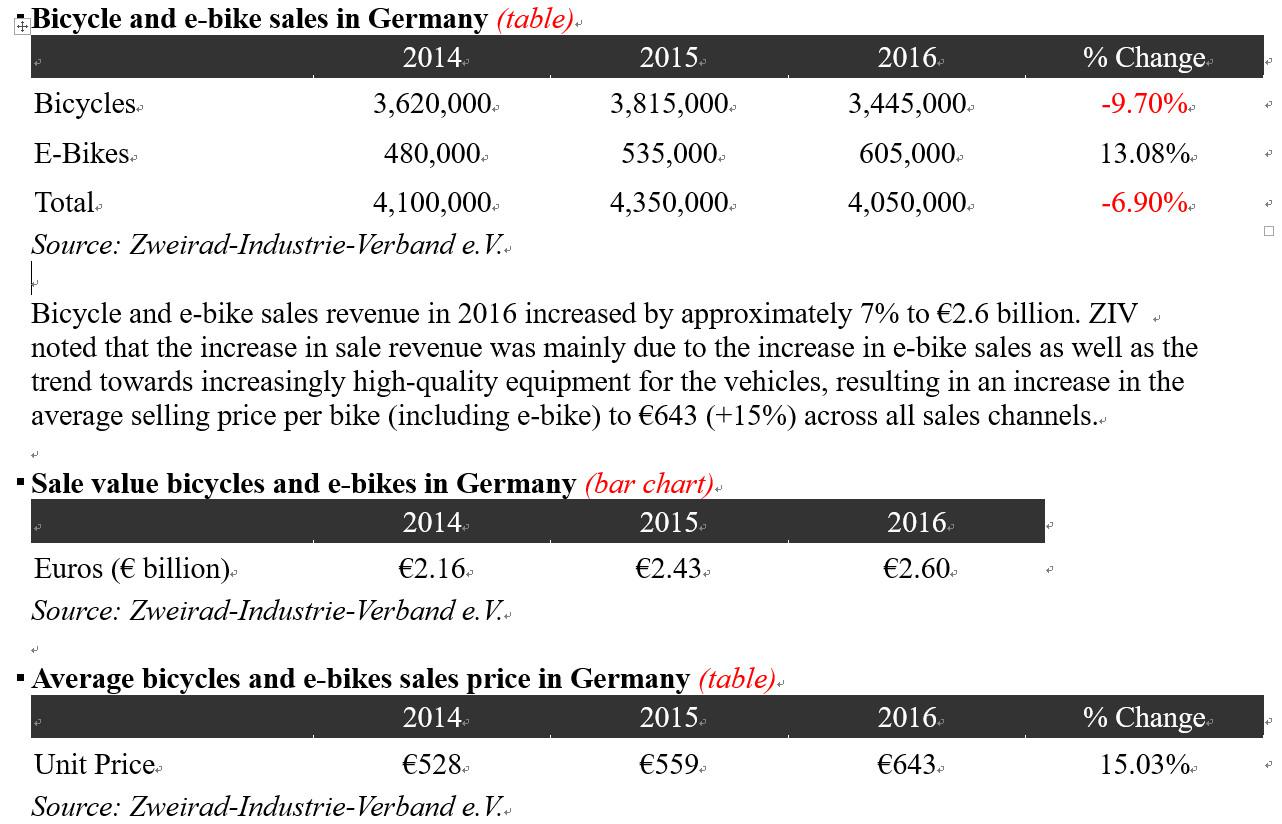
ZIV estimate the total turnover of the German bicycle, component and component industry was approximately €5.2 billion in 2016.
Categories
With regard to market share according to category, ZIV noted a slight decline sales of city / urban bikes, trekking bikes, youth bikes and MTBs. While all other categories remained stable, dutch & touring bicycles and the 'others' (recumbents, singlespeeds, etc.) increased slightly.
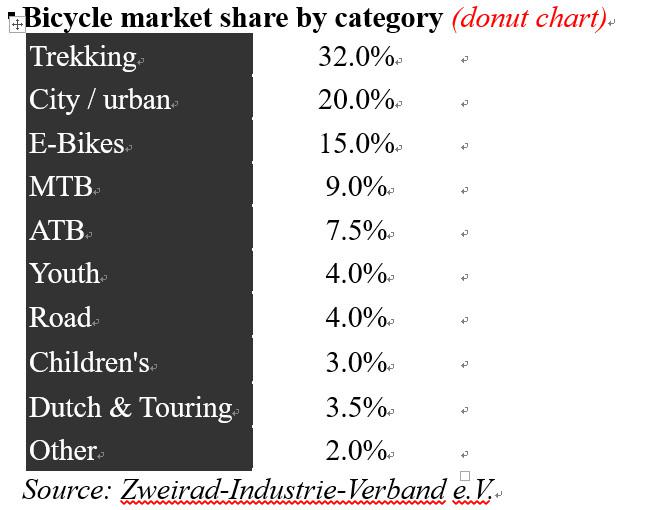
For the first time, ZIV also included information on sales of e-bikes by category. The association noted that e-city/urban model group held a 45% market share, e-trekking bikes a 35.5% share and e-MTBs a 15% share. E-cargo bikes represented 2.5% of the e-bike market, while speed and other types of e-bikes each represented a 1% proportion of the total e-bike market.
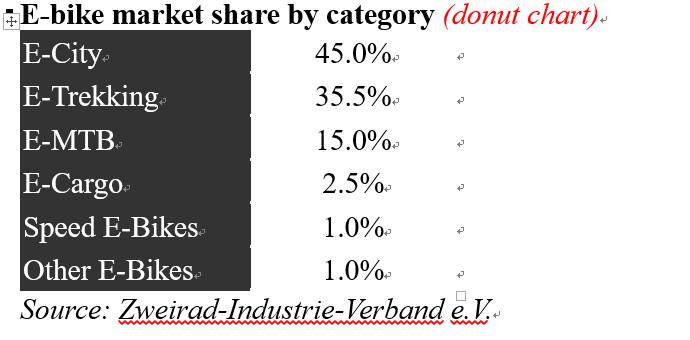
Retail Channels
In 2016, 69% of bicycles and e-bikes were sold through specialty bicycle retailers—a similar share to 2015. Bicycle sales in through mass market retailers declined from an 18% share in 2015 to a 16% in 2016, while bike sales via online retailers increased its share of the market from 13% in 2015 to 15% in 2016.
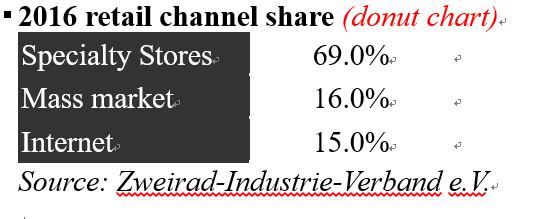
Domestic Manufacturing
1,970,000 bicycles and e-bike units were manufactured in Germany during 2016—a 10% decrease from the 2,190,000 units produced domestically in the previous year. However, domestic production of e-bikes increased to 351,000 units last year—up by 15% from 305,000 units in 2015. Production of non-electric assist bicycles dropped by over 14% to 1,619,000 units in 2016.

Exports
ZIV noted in its report that German e-bikes continued to maintain their popularity outside Germany. While German exports of traditional bicycles fell to 920,000 units, export of e-bikes rose by 66% from 140,000 units exported in 2015 to 233,000 units exported last year.
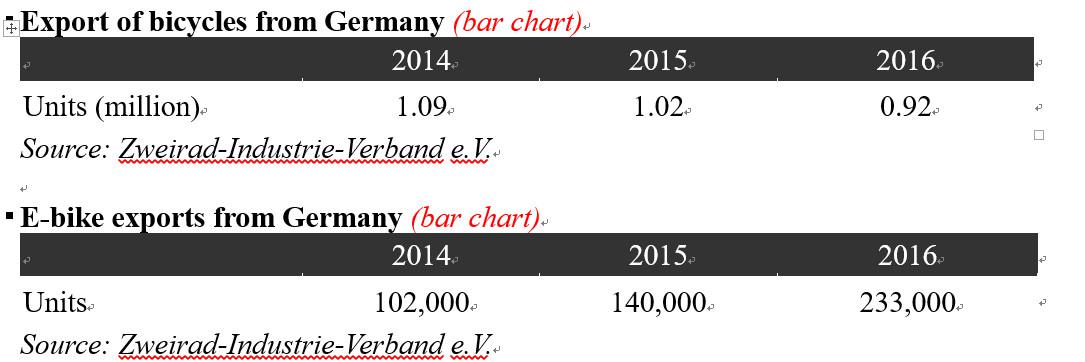
Imports
According to the data released by ZIV, total German imports of both bicycles and e-bikes dropped in 2016 with 3,157,000 units imported—a 3.75% decrease from the 3,280,000 bicycle and e-bike units imported into the country in the previous year. However, similar to Germany's sales, production and export figures, the decrease in imports was for traditional bicycles side; the e-bike share increased. Last year, Germany imported 567,000 e-bikes—a substantial 53.24% jump from the 370,000 units imported in 2015. Imports of regular bicycles fell by 11% from 2,910,000 units in 2016 to 2,590,000 in 2016.

Last year the top 5 source countries for bicycles imported by Germany all increased their percentage share of total bicycle imports. Most bikes were imported from Cambodia, which had a 23% share. Bulgaria, Poland, Taiwan and the Netherlands all also increased market share to 13%, 13%, 8% and 5% respectively.
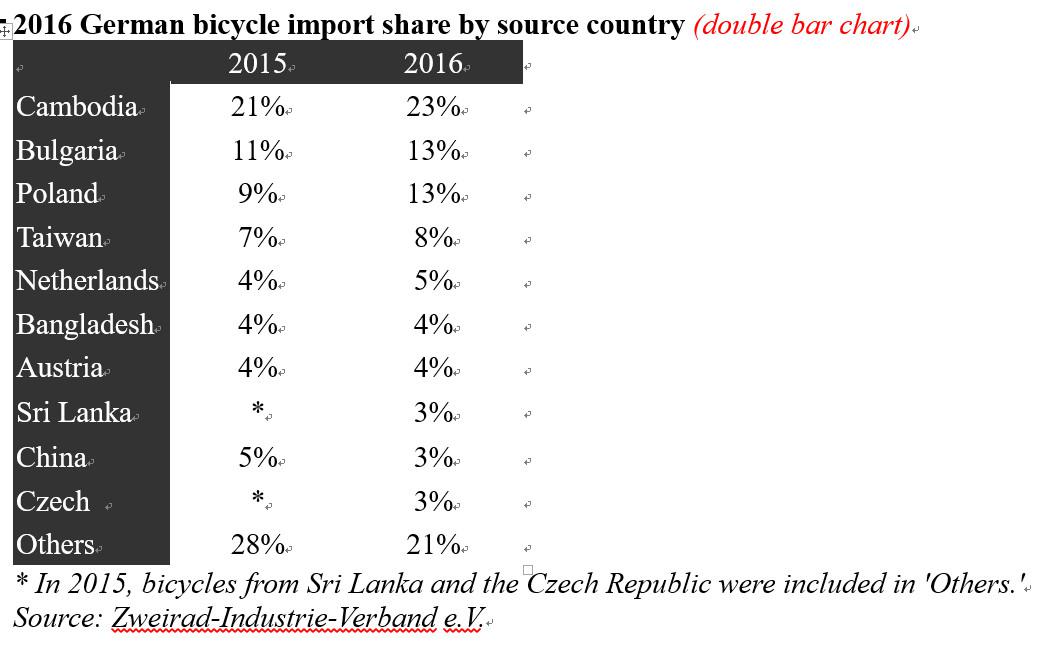
E-Bikes
As mentioned above, the share of e-bike sales in the overall German bicycle market has risen to 15% this year. ZIV estimates that the number of e-bikes on German roads is now about 3 million. The association also expects that in the mid-term e-bikes will come to represent an 18-20% share of the market, and in the long-term perhaps as much as 30%.
ZIV noted that the target groups for e-bikes in Germany were becoming younger and more sporty with e-MTBs becoming increasingly popular. E-bikes were also playing an increasingly important role in cities—not just with commuters but also with transportation of goods in e-cargo bikes.







